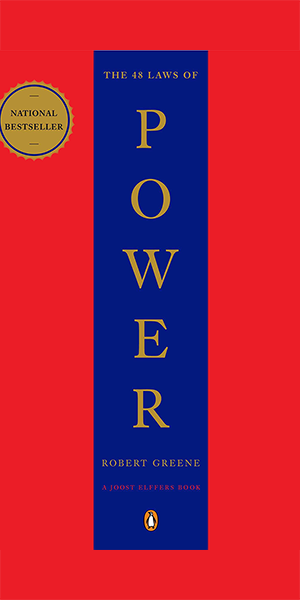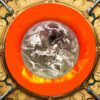The quiet, unexpected revolution
A quiet revolution has been sweeping across our cultural landscape. An ancient school of thought, over 2,300 years old, is making a remarkable comeback, not as a museum piece but as a thriving philosophy engaging millions of contemporary minds. This wisdom isn’t drawn from the latest technological advancements or trending hashtags, but from the intellectual treasury of Stoicism.
Data from Google Trends reveal that search interest in Stoicism has tripled over the past five years, a stark indication of the increasing global curiosity about this philosophy.
Concurrently, Amazon reports show a substantial rise in Stoicism-related book sales, with titles like Ryan Holiday’s “The Obstacle is the Way” and “Ego is the Enemy” selling millions of copies worldwide.
Stoicism and GenZ attitudes
Furthermore, according to a 2022 study by the Pew Research Center, millennials and Generation Z have shown heightened interest in philosophy and spirituality, with Stoicism ranking prominently among their preferred philosophical interests.
On the digital front, social media accounts espousing Stoic wisdom have amassed hundreds of thousands of followers, suggesting the philosophy’s appeal extends to younger, digitally-savvy generations.
So, what is the draw of Stoicism in our age? And why has it resonated with such a vast, diverse audience?
Stoicism: the historical perspective
Stoicism, as a school of thought, was originally established in the 3rd century BC by Zeno of Citium. It quickly became one of the dominant philosophies of the Hellenistic period, embraced by a wide array of people, from eminent scholars to the common populace.
Stoicism taught that the path to eudaimonia (happiness or fulfillment) is found in accepting the moment as it presents itself, uncontrolled by desire or fear. It emphasized virtues like wisdom, courage, justice, and temperance, grounding them in the nature of the world and the nature of human reason.
At the core of Stoicism is the belief in an ordered, rational universe. Stoics saw the world as an interconnected system guided by a divine plan. They believed that humans, as rational beings, could live in harmony with this natural order by restraining destructive emotions and cultivating a calm acceptance of life’s vicissitudes.
As empires rose and fell, Stoicism adapted, influencing and being influenced by the changing times. Roman Stoics like Seneca, Epictetus, and the Emperor Marcus Aurelius further refined the philosophy, their teachings immortalized in texts such as ‘Letters from a Stoic,’ ‘Discourses,’ and ‘Meditations.’
However, with the decline of the Roman Empire and the rise of Christianity, Stoicism faded into the background. It became less a public philosophy and more a quiet whisper, heard by those who sought it in the pages of ancient texts. Despite its diminished status, Stoicism remained influential, shaping Christian ethics and Western philosophical thought.
The re-emergence of Stoicism in modern times is a testament to its timeless appeal. The very qualities that appealed to our ancestors—its focus on inner peace, personal resilience, and understanding the natural order of the world—continue to offer grounding principles amidst the chaos and complexity of the 21st century.
Stoicism and modern challenges
The very qualities that appealed to our ancestors, however, resonate strongly with contemporary societies. The rapid pace of technological advancement, the volatility of global economies, and looming global challenges like climate change have all stirred a whirlpool of uncertainty.
Individuals are seeking philosophies that promote tranquility in such turbulence. Stoicism, with its emphasis on serenity in the face of uncontrollable circumstances, provides a welcome harbor.
The practicality of Stoicism
Furthermore, Stoicism’s surge in popularity can be attributed to its practicality. Unlike some philosophical schools that delve heavily into abstraction, Stoicism offers concrete, actionable advice. In a world where mental health is increasingly in focus, Stoicism provides a toolkit for emotional self-regulation and resilience.
This Stoic renaissance owes much to authors like Holiday and Hanselman. They have made this ancient philosophy accessible to a modern audience, translating dense philosophical concepts into easily digestible wisdom.
Their best-selling books have not only breathed new life into Stoicism but have also opened it up to a broader audience.
However, the burgeoning growth of Stoicism signifies a broader cultural shift towards introspection and self-improvement. As individuals strive to better understand themselves and their place in the world, philosophies providing such insights are destined to resonate.
The future of Stoicism
Looking to the future, it seems likely that Stoicism’s popularity will continue to grow. As global complexities and mental health pressures increase, the calming, practical wisdom of Stoicism appears more valuable than ever. The resurgence of Stoicism in the digital age underscores that the wisdom of our forebears maintains profound relevance, offering a path through difficulties rather than an escape from them.
If the Stoic renaissance tells us anything, it’s that even in the digital age, the wisdom of our ancient forebears still has profound relevance. As Seneca once said, “Difficulties strengthen the mind, as labor does the body.” In an era fraught with difficulties, Stoicism offers not an escape but a pathway through, making its resurgence both timely and poignant.
- Homo Sapiens Under the ET Microscope: A Non-human Biologic’s Perspective
- The Stoic Renaissance: Resurgence of an Ancient Philosophy in Modern Times
- From Shadows to Spotlight: Decoding Government Transparency on UFOs
- Enigmatic Aerial Encounters: Probing the Theories of UFOs
- What is Stoicism and why is this Ancient Philosophy Bigger than Ever?
Comments
0 comments




























